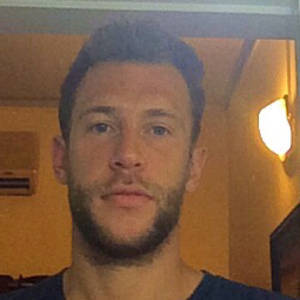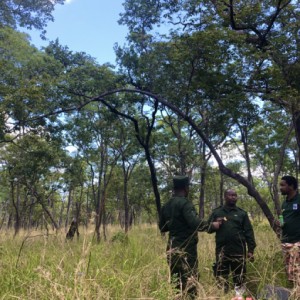Liparamba
Last night, agreeing our movements for today, I was told we’d meet at saa moja (1 o’clock). I knew we had a lot of distance to travel, but it sounded excessively early.
The Swahili clock is based around 6am being the start of the day, as that time is deemed the start of the morning in Swahili countries with little annual variation in daylight hours. When there is confusion or if a given time sounds strange, I add six hours to the clock and it is usually correct. I ascertained we were meeting today at 7am in the non-Swahili convention.
Today’s plan was to visit the area to the south and west of Songea, potentially important wildlife corridor and forest connectivity zones bordered by the Ruvuma River to the south and Lake Malawi to the west. On departure I was presented with a tin of local Mbinga coffee as a gift. Mbinga is a district and coffee-growing area in the hills between Songea and the steep descent to Lake Malawi. Reflecting that I’ve been banging on about coffee to colleagues on this trip, it was a sweet gift, although I remembered a Mash Report clip that announced that ‘drinking gin is not a substitute for a personality.’ The same can definitely be applied to coffee in my case.
It was cold high up at the Mbinga District headquarters where we picked up some government partners, who would escort us to Liparamba Game Reserve. Mbinga encompasses the upland area inhabited by the Matengo people, who intensively cultivate the red soils of the hilly, agricultural landscape.
Liparamba is a lovely patch of miombo woodland, protecting a nice block of forest that spans to the Mozambique border. There are issues with gold mining in the upper reaches of some tributaries, which pollutes the water in the Reserve. We stopped for biscuits and Sprite in a particularly delightful patch of forest (see extra).
Afterwards we continued our day of bumping around the far southwestern corner of Tanzania, traversing the stunning hills that flank Lake Malawi, in the area south of the Kipengere Range (which is also known as the Livingstone Mountains).
When we reached Lake Malawi the sun was almost setting, and the lakeshore at Mbamba Bay was a hive of activity. Freshwater sardines were being dried on long wooden platforms, as I’ve seen in the Mozambican portion of the lake. As no field trip can take place without someone hijacking it to buy fish or seafood (squid purchases by the Cambodia field team used to be common), Richard then entered into a negotiation for a bucket of sardines, apparently cheaper here than in town. I was principally concerned about travelling around for a further ten days or so with several kilos of fish perfuming the car.
It was a late drive back through the hills to Songea, but Ernest the driver was back on hand with his USB stick in the stereo, this time with some Kenny Rogers. Ernest’s father hailed from Mbamba Bay and until today Ernest hadn’t visited the town. He was therefore carrying back a bottle filled with Lake Malawi water, as a sentimental gift for his family.


Comments
Sign in or get an account to comment.


